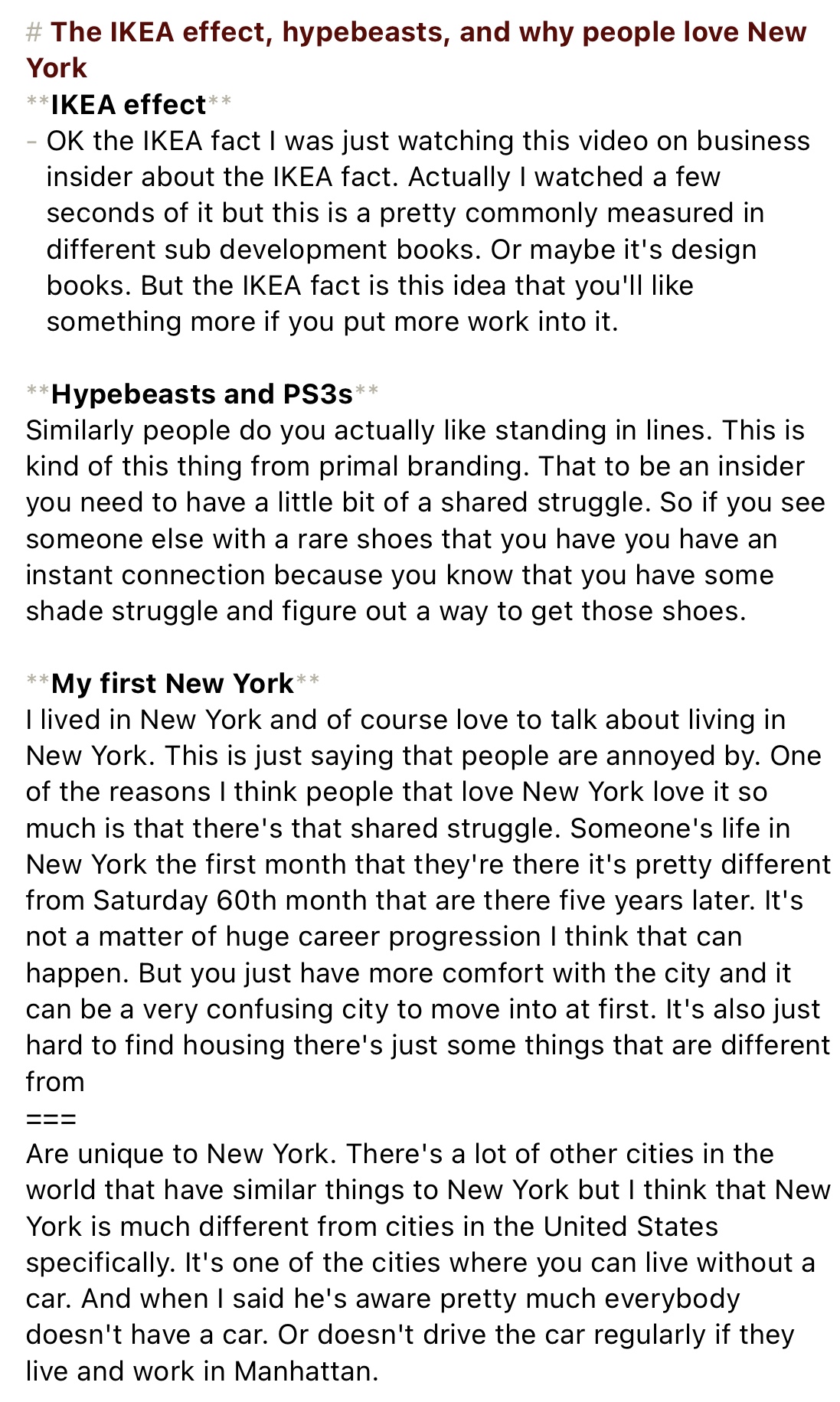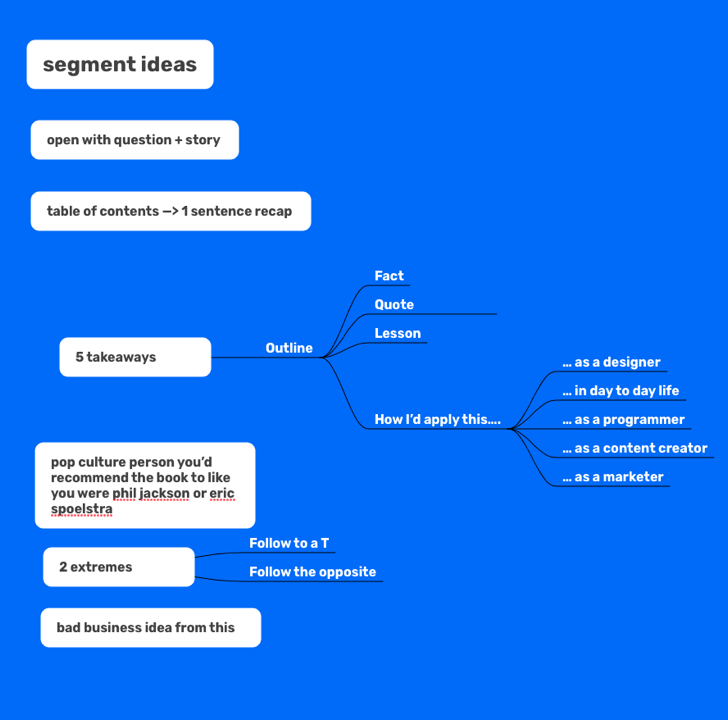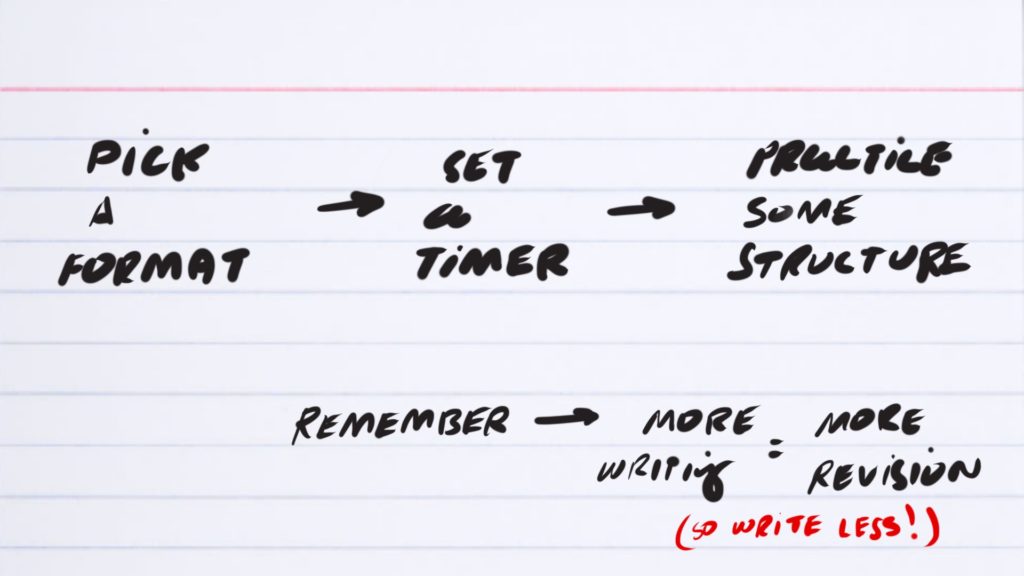Here’s the raw output from a dictation session.
Now, I’m not arguing that it’s good, but some seeds of good ideas are there. I’ve certainly spent more time struggling, writing at a keyboard and gotten worse results.
Every time I dictate, I become convinced I should only dictate to start published writing. The speed could outweigh the negative tradeoffs.
Maybe I can…
- Do a very quick outline
- Smooth it out for a post
- Record a podcast
- Add show notes below the original post (and maybe a cleaned up transcript)
And eventually add some visuals for a thread.
Then the most popular threads can become videos.





 Not 10,000 kicks 1 time.
Not 10,000 kicks 1 time.